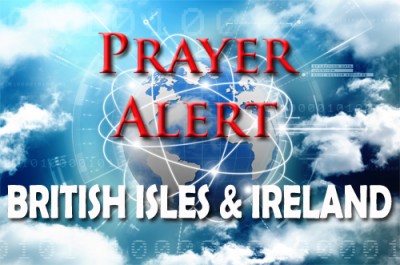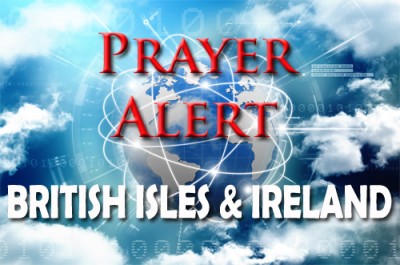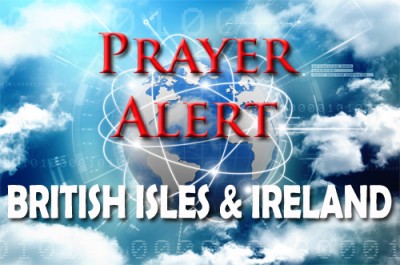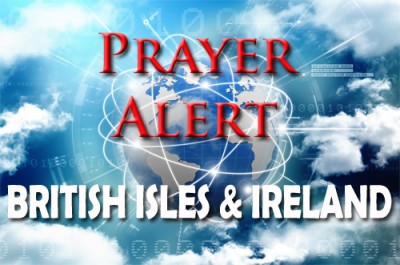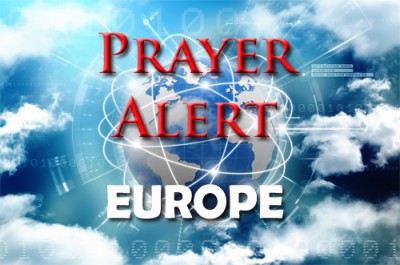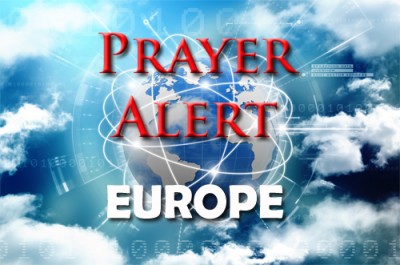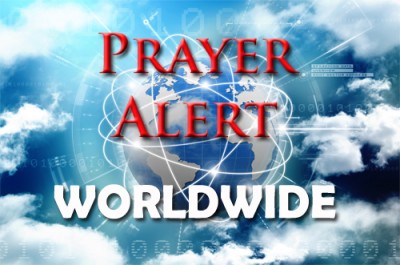Proposal to remove restrictions on abortion
A bill on abortion rules will be brought before Parliament on Monday under the ten-minute rule. This bill calls for the decriminalisation of abortion, without specifying any restrictions - allowing abortion up to birth, on demand, for any reason. Conservative MP Maria Caulfied commented, ‘We are surprised and deeply concerned that such a radical proposal is being brought forward. Already within our current legal framework we have seen doctors pre-signing forms, gender-selective abortions being offered, live babies being left to die following abortions that have gone wrong and children with minor disabilities, such as cleft palates, aborted.’ Also please pray for Roger Kiska, who in a historic case on Tuesday will present oral arguments before the EU Court of Justice on behalf of the 1.9 million Europeans who signed the initiative to protect the unborn child.
Boy kept in prison cell 23 hours a day
Last week an independent investigation exposed serious allegations of international human rights breaches at young offenders’ institutions in the UK. One example was a teenage prisoner with a serious mental health condition who, it is claimed, was placed in solitary confinement inside a number of different British jails during a period of six months, causing him considerable distress and psychological damage. Prison inspection reports suggest some children have been driven to self-harm due to the severe emotional distress of solitary confinement. On Tuesday a legal challenge began over a boy locked up for 23 hours a day in a young offenders’ prison in west London. See:
Beware the BBC
Last Sunday's Songs of Praise included worship in a mosque. Is the BBC's Muslim head of religious programming changing Christian slots? Last November, following complaints of unacceptable Muslim bias and the deliberate marginalisation of Christianity, the BBC said that it was axing both the role of head and the department of religion, bringing all religious programming and coverage under the remit of former Labour MP James Purnell, the head of radio and education. However, on 25 February it quietly announced that it had appointed another Muslim, Fatima Salaria, as the new head of religious programming - going against its previous statement. The BBC seems to be favouring Muslims, ignoring pleas of other religious groups for proportionate and fair representation. In another incident, the BBC questioned the decision by an MP to come to a parliamentary committee on Ash Wednesday with a small ash cross marked on her forehead. As Barnabas Fund put it, ‘It would be hard to imagine the BBC mocking a Muslim MP for keeping Ramadan’. See:
The Budget: the main points
On Wednesday Philip Hammond delivered his first Budget as Chancellor. He said that the Treasury's priority was ‘making sure that our economy is resilient and that we’ve got reserves in the tank’ as the Government prepares to begin Brexit negotiations. Some of the key points were: - extra money for new free schools in England, which could include grammar schools - significant spending on social care - £5m fund to mark next year's centenary of women first getting the vote - cash to alleviate the impact of increased business rates on firms - £500m support for electric vehicles, robotics and artificial intelligence. The decision which has attracted the most criticism is an increase in national insurance contributions by self-employed people. The debate goes on, and the media discussions will help Christians to digest and intercede wisely in the coming days. In the midst of change and challenge, we can pray for the United Kingdom to step into a new level of governing that is led by God’s Holy Spirit at every level.
UN: women’s economic empowerment
The 61st session of the Commission on the Status of Women, taking place in New York from 13 to 24 March, will focus on 'Women’s economic empowerment in the changing world of work.’ This session gathers together global leaders, NGOs, private sector actors, UN partners, and activists from around the world, focusing on the status of rights and empowerment of all women and girls. It takes place as the world of work is changing, urged by innovation, globalisation and increasing human mobility. At the same time, it is adversely impacted by climate change, humanitarian crises, rising informality of labour, and economic inequality. For sustainable and healthy economies, the world of work must empower women and remove the persisting inequalities that hold them back from getting on equal footing with men.
French teacher suspended for reading Bible to pupils
In France, teachers may teach about the Bible, but are strictly forbidden from proselytising or preaching. A step to keep religion out of schools was taken in 2013 when schools were ordered by law to put a charter in a prominent place to remind people of fifteen secular Republican principles. Last week a teacher in Malicornay, central France, was suspended after reading passages of the Bible to his pupils, aged between nine and eleven. Parents of pupils in the class objecting to the teacher's lessons wrote an anonymous letter of complaint to the headmaster, who then decided to suspend the teacher for his apparent disregard of France's strict secularism laws that separate religion from public sphere, in particular in education. The national education board is reviewing the case. France takes secularism - or laïcité - very seriously; however, it is unusual for a teacher to be suspended for reading a passage from the Bible.
Netherlands: a rising wave of populism
Geert Wilders’ Party for Freedom (PVV) is set to win the largest number of seats in the Dutch election. The current global wave of anti-establishment sentiment, and the migrant crisis has boosted support for PVV. The election is less than a month away, and Wilders is recorded as saying, ‘All Christians should vote for my party because we are against Muslims and for Israel.’ But many believe that his populist policies generate fear and hate. A study in 2016, Saving the People, says that populists hijack religion for their cause. They see two groups of ‘enemies of the people’- the ‘elites’ and the dangerous ‘others’ who threaten the wellbeing of the people. Pray for voters to be discerning, see the bigger picture, ask what the fruit of populist policies will be, and to view everything through the lens of the radical politics of God’s kingdom. See also
Is Iran seeking a foothold in Syria?
Israeli prime minister Benjamin Netanyahu and Russian president Vladimir Putin met in Moscow yesterday. Netanyahu opposes what he says are Iran's attempts to establish a permanent military foothold in Syria. He told his cabinet, ‘In the framework of a future peace agreement or without one, Iran is attempting to base itself permanently in Syria - either through a military presence on the ground or a naval presence - and also through a gradual attempt to open a front against Israel on the Golan Heights’. Israel's arch-enemy, has been Syrian president Bashar al-Assad's backer and has provided militia fighters to help him; Russia, also Assad's ally, is seen as holding the balance of power in a deal on Syria's future. Geneva’s UN-led Syria peace talks last Friday ended without a breakthrough.

